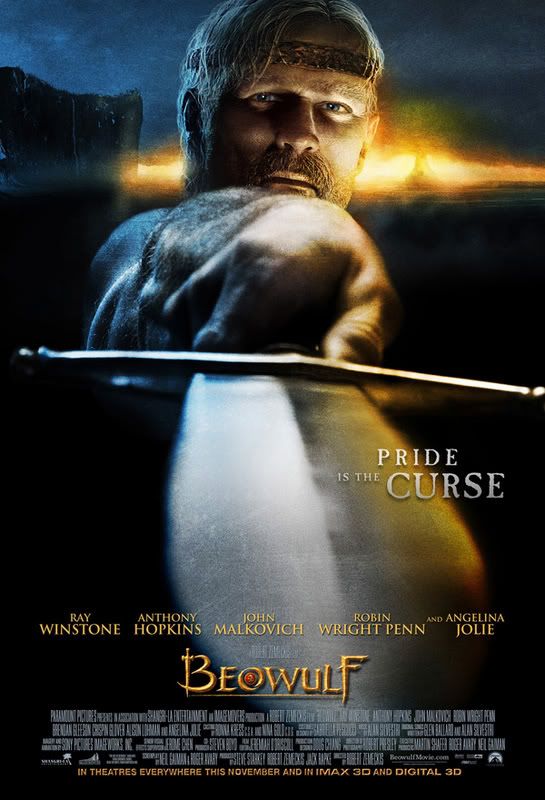
The definition of a true hero seems to have changed drastically over the course of history. There seem to be very few purely good, flawless heroes in today’s stories. If such were the case perhaps we would have received a truer version of the Beowulf poem from director Robert Zemeckis, but as it stands, “Beowulf” is just as much of an imperfect adaptation as it is an imperfect movie.
The film begins with Hrothgar’s Hall being crushed by the creature known as Grendel—Once it’s nearly destroyed it closes under King Hrothgar’s orders. “No more merry-making!” He announces. Then enters Beowulf, the great hero of old English literature. He comes to Hrothgar’s kingdom to claim the glory of defeating Grendel and after that any resemblance to the original poem ends. Sure there is a battle with a dragon at the end, and Beowulf does become a powerful king, but the reasons and meanings behind those events are completely lost in the upheaval of CG animation and needless story changes.
I will not list the differences between the Beowulf poem and the film because a review should not be a list. However, I will say that I very much enjoy the original story and its concept of merging pagan and Christian elements as one. (While Beowulf praised God in the poem, he scolds Christ for “killing the age of heroes” in the film.) The real question to these changes is “why?” Well it’s very simple. Look at all the superhero movies we get these days. Batman, Spider-Man, Hulk, the X-Men—They all have some element of tragedy and flaws within them and they are all very successful. The fact is people find flawed heroes far more interesting, and the goody-goodies are now left for young children to worship: Goku from “Dragon Ball Z,” the Power Rangers…etc…
Beowulf’s character in the film is almost a complete 180 compared to the poem’s hero. As such he’s probably a character today’s culture can accept easier. Is that good for the movie and the box office? Probably, but it isn’t the Beowulf I wanted to see—It certainly wasn’t the real Beowulf anyway. The butchering of the poem may have helped grab a wider audience, but it really says something about our culture’s attention span, and willingness to step outside of the box, if all we want to accept is the same old stuff we’ve seen hundreds of times before. The opportunity to bring back the flawless hero is dropped altogether and as a result the major themes and original story of the Beowulf epic is lost.
This isn’t to say the film is altogether bad. If one pretends to ignore the existence of the original poem they may find a decent movie underneath the CG character illustrations and poor writing. Frankly I didn’t see too much more than some impressive visuals and entertaining action sequences, but I certainly appreciate the underlying art to all of it.
“Beowulf” looks pretty. While I don’t necessarily understand why the choice was made to CG animate the entire film as realistically as possible, I assume that’s the only reason it was made to begin with. From what I can gather, Zemeckis wanted to further CG filmmaking and he needed some sort of streamlined action story to do that. He dumbs down a legendary poem, makes it fitting for today’s audience and then spends the rest of the time evolving CG effects and 3-D technology. In that aspect he succeeded. I have to admit that, even though I thought some shots looked peculiar, the effects were very good. CG animation has come a long way since “Final Fantasy: The Spirits Within.”
Now I don’t want to completely bash “Beowulf.” It has its merits and is certainly entertaining, but I feel Zemeckis has lost touch with reality. If this type of generic storytelling is what we’re going to get every time a CG movie of this caliber is made, then I have no interest in more films like this. What a nightmare “Back to the Future” might have been had he made it today. At least it would look nice. Right?
** out of ****


